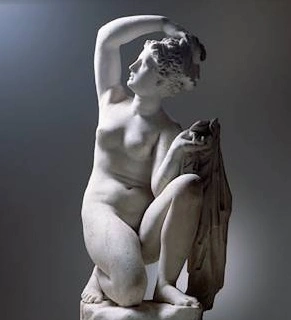Pygmalion Greek Son of Belus, a sculptor from Cyprus who despised women but adored the goddess Aphrodite.
Publié le 26/01/2014

Extrait du document

Pygmalion Greek Son of Belus, a sculptor from Cyprus who despised women but adored the goddess Aphrodite. He made an ivory statue of her of such extraordinary beauty that he fell in love with it. As he embraced the statue, Aphrodite answered his prayers and made the statue come to life, giving it the name Galatea (3). This story, from Ovid's Metamorphoses, enhances the legendary power of Aphrodite over all creation. It has been told many times, most famously in the play Pygmalion by George Bernard Shaw (1856-1950), the source of the musical My Fair Lady by Alan Jay Lerner and Frederick Loewe.
Liens utiles
- Libertas Roman The personification of liberty, considered by some a goddess who protected the freedom and liberty of Roman citizens, even from despots and dictators, and who granted liberty to freed slaves.
- Maenads Greek The crazed women who followed the god Dionysus.
- Mephitis (Mefitis) Roman A goddess who protected the people of Rome and surrounding cities in Italy from the dangerous fumes of sulphur that spewed from the many volcanoes and the gaseous vents surrounding them.
- Midas Greek A mythical king of Phrygia, an ancient region of central Asia Minor; son of the goddess Cybele and Gordius, from whom he inherited the throne.
- Nemesis Greek Goddess of vengeance; personification of the wrath of the gods toward those who had hubris, a Greek word meaning exaggerated pride in one's achievements or good fortune.





